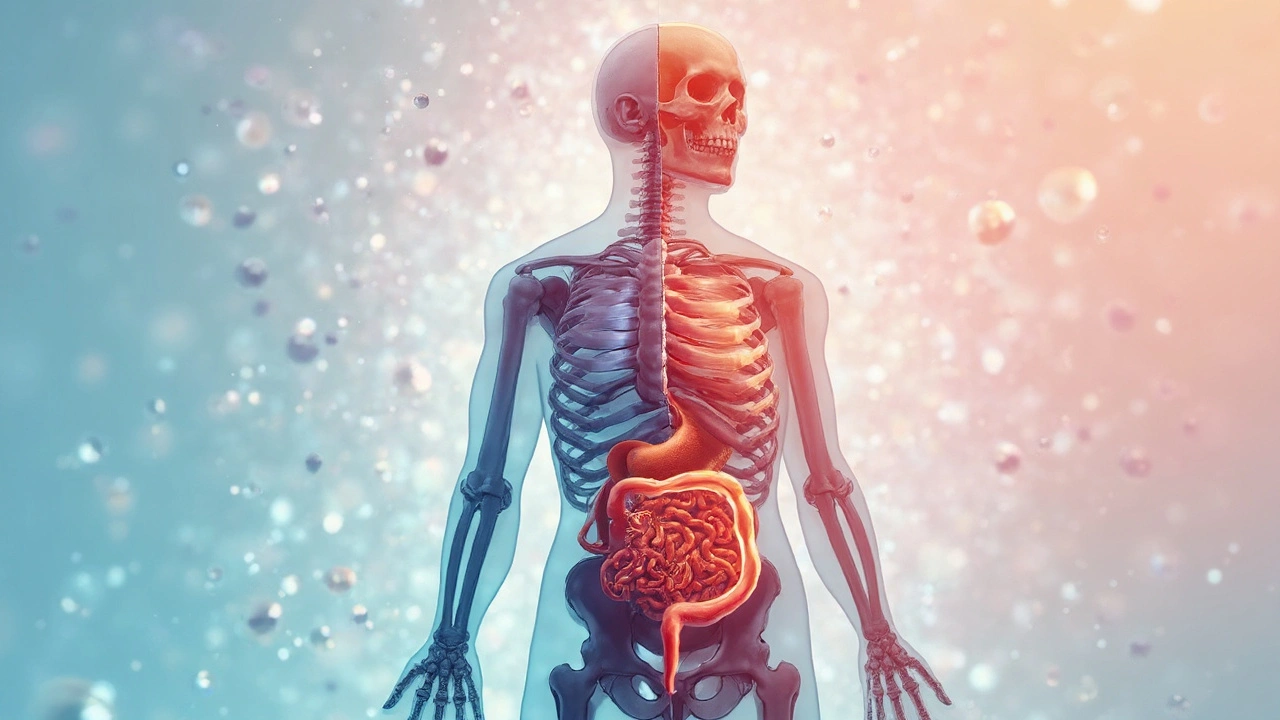Hormones – What They Are and Why They Matter
Ever wonder why you feel hungry, sleepy, or stressed at certain times? Hormones are the messengers behind those signals. They travel through your blood, tell organs what to do, and keep everything running smoothly. When they’re out of whack, you might notice weight changes, mood swings, or trouble sleeping.
Think of hormones as the body’s text messages. Insulin alerts cells to pull glucose from the bloodstream. Thyroid hormones boost metabolism, while cortisol helps you handle stress. Each hormone has a job, and the endocrine glands—like the pituitary, adrenal, thyroid, and pancreas—are the senders.
Common Hormones and Their Functions
Insulin – Made by the pancreas, it lowers blood sugar after you eat. Too little insulin leads to diabetes; too much can cause low blood sugar episodes.
Thyroid hormones (T3, T4) – Regulate how fast your body burns energy. Low levels can make you feel sluggish; high levels may cause anxiety and rapid heartbeat.
Cortisol – Known as the stress hormone, it spikes during emergencies and helps control blood pressure and immune response. Chronic high cortisol can contribute to weight gain and high blood pressure.
Estrogen and Testosterone – Drive sexual development and impact mood, bone density, and muscle mass. Imbalances affect everything from libido to mood swings.
Growth hormone – Helps tissues grow and repair. It’s essential for kids, but adults need it in smaller amounts to maintain muscle and bone health.
Tips to Keep Your Hormones Balanced
First, watch your diet. Foods high in sugar cause insulin spikes, while processed carbs can upset thyroid function. Aim for whole foods: lean proteins, veggies, nuts, and healthy fats.
Second, get regular sleep. Deep, consistent sleep resets cortisol and growth hormone cycles. Try to stick to a 7‑9 hour window and keep screens out of the bedroom.
Third, manage stress. Short bursts of stress are fine, but chronic tension keeps cortisol elevated. Simple practices like breathing exercises, short walks, or a hobby can lower that hormone quickly.
Fourth, move your body. Exercise boosts insulin sensitivity, raises testosterone in both men and women, and supports thyroid health. Even a 30‑minute walk makes a difference.
Lastly, stay hydrated and limit alcohol. Dehydration stresses the adrenal glands, and too much alcohol interferes with estrogen metabolism.
If you suspect a hormone issue—persistent fatigue, sudden weight changes, or mood swings—talk to a healthcare provider. Blood tests can pinpoint which hormone needs attention, and there are lifestyle tweaks or medications that can help.
On our Hormones tag, you’ll find deeper dives into specific hormones, medication guides, and practical advice. Whether you’re curious about thyroid health, want to manage cortisol, or need tips on natural hormone support, we’ve gathered the latest, easy‑to‑follow articles for you.
Use the list of posts above to explore real‑world examples, from cholesterol impacts of ARBs to safe online pharmacy tips. Each piece is written to give you clear steps, not jargon, so you can take action today.
Remember, hormones are powerful but manageable. With the right diet, sleep, stress control, and movement, you can keep them in balance and feel your best every day.


